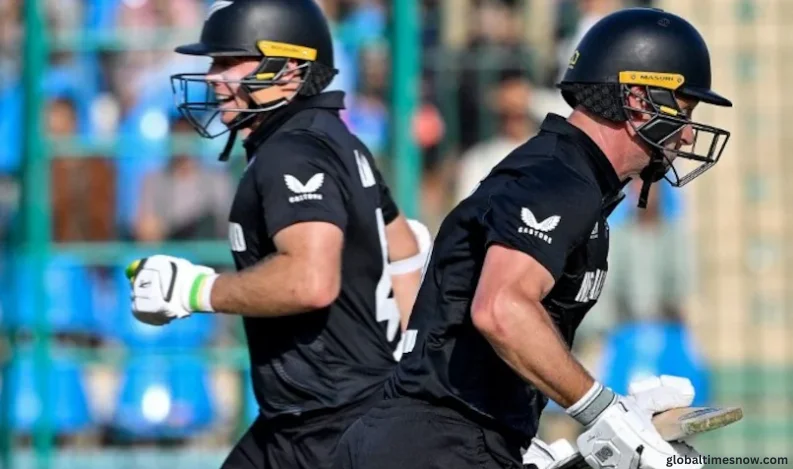New Zealand showcased a dominant performance in the opening match of the Champions Trophy 2025, securing a 60-run victory over Pakistan in Karachi on Wednesday (February 19). The key to their success, according to Will Young, was their ability to build strong partnerships despite the challenging conditions.
Steady Recovery After Early Setback
After being put in to bat, New Zealand faced early trouble, losing Devon Conway and Kane Williamson in quick succession, reducing them to 40/2 and later 73/3. However, the innings took a turn for the better when Will Young (103) and Tom Latham (112) stabilized the innings with a 118-run stand for the fourth wicket.
The momentum continued as Latham and Glenn Phillips (67 off 45) added a rapid 125-run partnership off just 74 balls, propelling New Zealand to an impressive 320/5. The ability to rotate strike and capitalize on scoring opportunities at crucial moments was instrumental in their commanding total.
Reflecting on the innings, Young emphasized the importance of building partnerships in challenging conditions.
"We knew we were in a little bit of trouble early on, but Tommy (Latham) and I focused on getting to the 30-over mark without losing more wickets. That was our first target, and from there, we wanted to accelerate. When I got out in the 38th over, I thought 280 was a strong total, but Glenn and Tommy finishing at 320 gave us the upper hand."
Pakistan’s Struggle in the Chase
Pakistan’s pursuit of 321 started on a shaky note, with the team managing only 22 runs in the first 10 overs, losing Saud Shakeel and captain Mohammad Rizwan early. Fakhar Zaman, playing through an injury, struggled to run, and Babar Azam’s slow start further dented their chase.
A brief 58-run stand between Babar and Salman Agha offered some resistance, but with wickets falling at regular intervals, Pakistan found themselves on the back foot. Despite late efforts from Agha (42 off 28) and Khushdil Shah (69 off 49), the target proved too steep, and Pakistan was eventually bowled out, falling short by 60 runs.
Speaking after the match, Agha admitted that Pakistan failed to build momentum in their chase.
"When you're chasing 320, partnerships are key. We couldn't establish that early on, and the wickets kept falling. Our powerplay was slow, and that hurt us. Compared to our successful chase of 353 against South Africa last week, the start made the difference today," he noted.
New Zealand’s Tactical Execution
New Zealand’s disciplined bowling attack ensured Pakistan never got ahead in the chase. Their pacers exploited the tricky surface, while the spinners effectively controlled the middle overs. The hosts' inability to find a rhythm in the powerplay, coupled with Zaman’s limited mobility, made the chase difficult.
Young acknowledged the challenging nature of the Karachi pitch and credited his team’s ability to adapt and execute their game plan efficiently.
"The conditions weren’t easy. The seamers got movement, and the spinners got turn when they slowed the ball down. We knew we had to get a strong total and then bowl smartly, which is exactly what we did."
Looking Ahead
With a winning start in the tournament, New Zealand has gained early momentum, while Pakistan will need to regroup quickly before their next match. The importance of partnerships and early acceleration will be a key takeaway for both teams as the tournament progresses.























